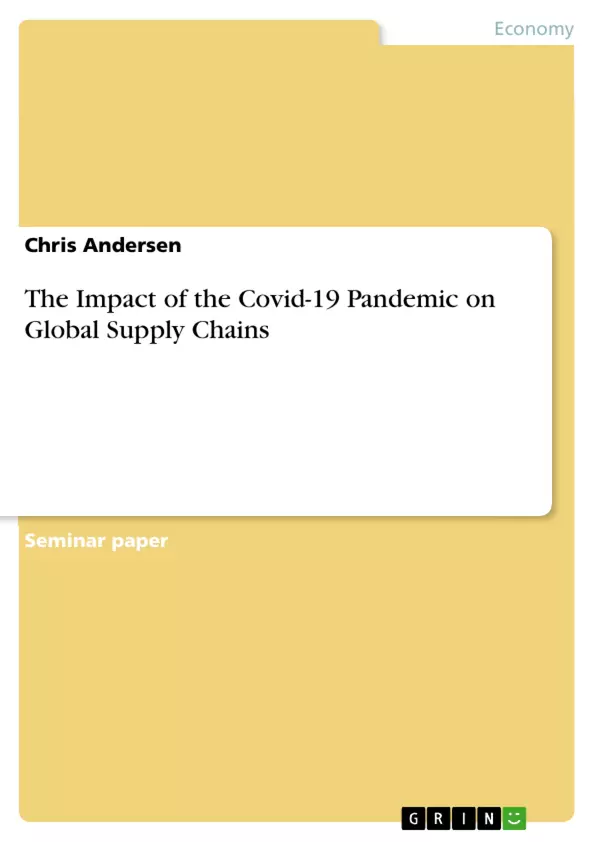The COVID-19 pandemic profoundly disrupted global supply chains, leading to unprecedented economic challenges and logistical complexities. Originating in China in December 2019, the virus rapidly spread to over 210 countries, resulting in more than 100 million confirmed cases worldwide and over 2 million deaths. This global crisis triggered severe disruptions across various sectors, including high-tech industries, automotive manufacturing, pharmaceuticals, and food supply chains. Notably, companies like Apple, Samsung, and Tesla experienced production halts due to labor shortages and supply chain constraints. Additionally, the pharmaceutical industry grappled with increased demand for essential medical supplies, while the food sector faced labor shortages and transportation disruptions. The pandemic-induced shutdowns, travel restrictions, and stringent import/export controls severely hampered international logistics, further exacerbating supply chain vulnerabilities. Consequently, the crisis highlighted the intricate interdependencies within global supply chains and underscored the urgent need for resilience, sustainability, and strategic reevaluation to mitigate future disruptions effectively.
Inhaltsverzeichnis (Table of Contents)
- Introduction
- How COVID-19 Impacted Supply Chains
- Industries That Got Impacted by the Pandemic
- High Tech Industries
- Automotive Parts Industry
- Medicines and Medical Equipment Industry
- The Food Industry
- The Logistics Industry
- Conclusion
- References
Zielsetzung und Themenschwerpunkte (Objectives and Key Themes)
This paper examines the profound impact of the COVID-19 pandemic on global supply chains. The objective is to analyze the disruptions caused by the virus and explore the resulting challenges for various industries. The paper also aims to highlight the need for resilience and strategic reevaluation in global supply chains to mitigate future disruptions effectively.
- Disruptions caused by COVID-19 to global supply chains.
- The impact of the pandemic on specific industries, including high-tech, automotive, pharmaceutical, and food sectors.
- The role of government measures and travel restrictions in exacerbating supply chain vulnerabilities.
- The need for resilience and strategic reevaluation to mitigate future disruptions in global supply chains.
- Comparisons to past disruptions caused by natural disasters.
Zusammenfassung der Kapitel (Chapter Summaries)
- Introduction: This chapter sets the stage for the paper, outlining the global spread of COVID-19 and its significant impact on various business models, particularly in China, which accounts for a substantial portion of global supply chains. The chapter emphasizes the worldwide economic repercussions, including the worst recession since World War II, and the significant reduction in global trade volume.
- How COVID-19 Impacted Supply Chains: This chapter delves into the specific ways in which the pandemic disrupted global supply chains. It highlights the implementation of government measures such as shutdowns, travel restrictions, and mandatory confinement, leading to labor shortages, material scarcity, and logistical bottlenecks. The chapter emphasizes the far-reaching impact of these disruptions, predicting a prolonged recovery period.
Schlüsselwörter (Keywords)
The key keywords and focus topics of this paper include global supply chains, COVID-19 pandemic, economic impacts, disruptions, resilience, sustainability, strategic reevaluation, high-tech industries, automotive manufacturing, pharmaceuticals, food supply chains, logistics, government measures, travel restrictions, labor shortages, material scarcity, and future disruptions.
- Arbeit zitieren
- Chris Andersen (Autor:in), 2023, The Impact of the Covid-19 Pandemic on Global Supply Chains, München, GRIN Verlag, https://www.hausarbeiten.de/document/1438525


